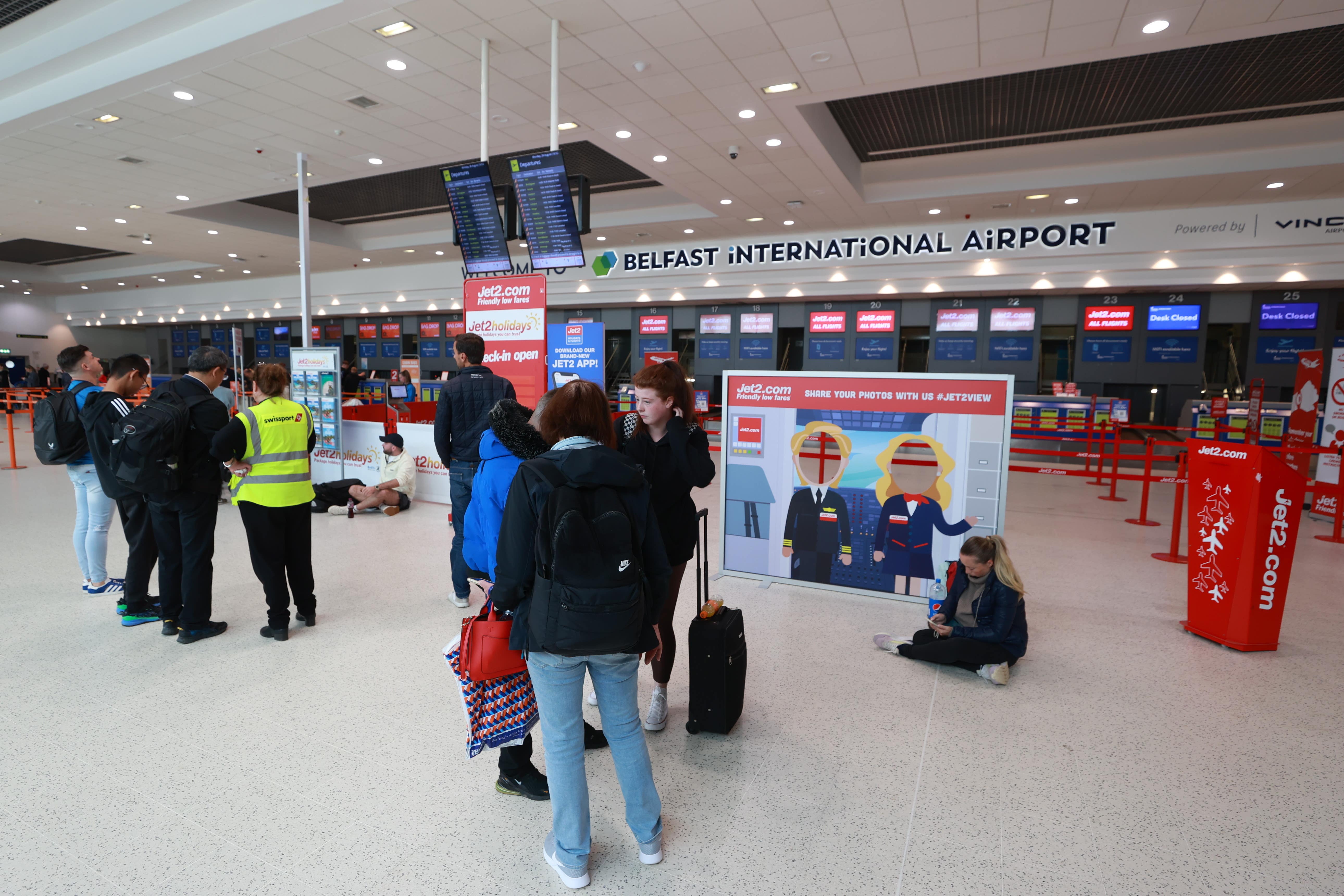Northern Ireland tourism at risk from electronic travel scheme – civil servant
Ian Snowden, of Northern Ireland’s Department for the Economy, sounded the warning at a tourism event on Thursday.

Your support helps us to tell the story
From reproductive rights to climate change to Big Tech, The Independent is on the ground when the story is developing. Whether it's investigating the financials of Elon Musk's pro-Trump PAC or producing our latest documentary, 'The A Word', which shines a light on the American women fighting for reproductive rights, we know how important it is to parse out the facts from the messaging.
At such a critical moment in US history, we need reporters on the ground. Your donation allows us to keep sending journalists to speak to both sides of the story.
The Independent is trusted by Americans across the entire political spectrum. And unlike many other quality news outlets, we choose not to lock Americans out of our reporting and analysis with paywalls. We believe quality journalism should be available to everyone, paid for by those who can afford it.
Your support makes all the difference.There is a “real risk” to tourism in Northern Ireland from the UK’s electronic travel authorisation (ETA) scheme, a senior civil servant has said.
An ETA is set to become a requirement for people who do not need a visa to come to the UK, although it will not apply to Irish citizens as they have a right to travel to any part of the UK under the Common Travel Area.
Speaking at a tourism event in Belfast, Ian Snowden, permanent secretary at Northern Ireland’s Department for the Economy, praised the recovery in the sector following the coronavirus pandemic, but warned challenges remain.
“We can’t be complacent. There is a lot to be positive about but there is also a long journey still to go to full recovery after the pandemic and we have some new challenges that we have to address,” he told Tourism Ireland’s 2024 marketing plan launch in Belfast.
“I’m sure a lot of you here will have concerns about the UK Government’s proposed electronic travel authorisation scheme.
“There is a real risk here that that might discourage tourists who come to Ireland, including Northern Ireland, as part of their itinerary during their visit, and given that 70% of our overseas visitors travel here via the Republic, getting the operation messaging around that scheme right will be hugely important.
“To that end, the department has been engaging closely with the Home Office about the factors that they need to consider about Northern Ireland and how they develop their communications strategy and how they operate the scheme.
“It seems extraordinary to say this after so much discussion around Brexit but it’s difficult sometimes to encourage UK-based civil servants to understand that the UK has got a land border with a different country.
“But we have to then make sure that they understand how that works in practice, what that border looks like and how it will affect us.
“We’re going to continue to work very hard to make sure that the impact of the ETA is minimised as much as humanly possible.”
In her address to Tourism Ireland’s 2024 Marketing Plan in Belfast, the body’s chief executive designate, Alice Mansergh, commended Mr Snowden for having “talked beautifully about ETA”.
“Our focus there will be partnering very closely with the relevant departments and with government in order to make sure we’re fully acknowledging and mitigating any risks,” she said.
A UK Government spokesperson responded: “We are introducing an Electronic Travel Authorisation (ETA) scheme to enhance our ability to prevent the travel of those who present a threat to the UK.
“Individuals arriving in the UK, including Northern Ireland, will need to continue to enter in line with the UK’s immigration framework, including obtaining an ETA if required.
“We are committed to working with a wide range of stakeholders to help ensure the ETA requirement is communicated effectively and to mitigate against it being seen as a barrier to cross-border tourism on the island of Ireland.”